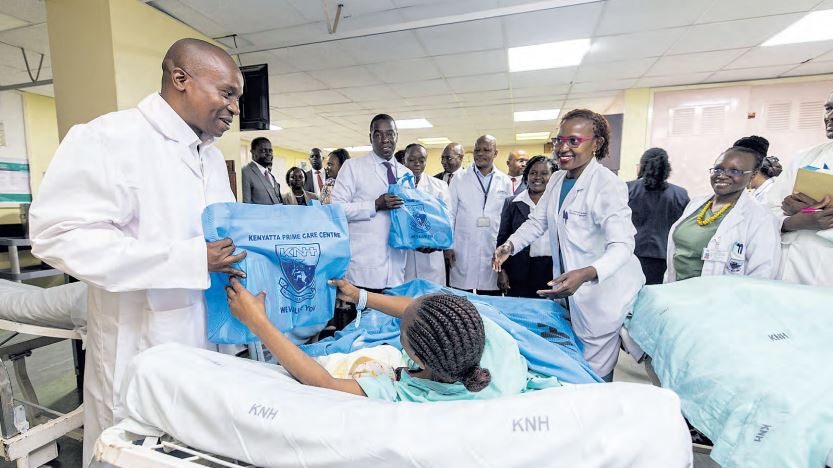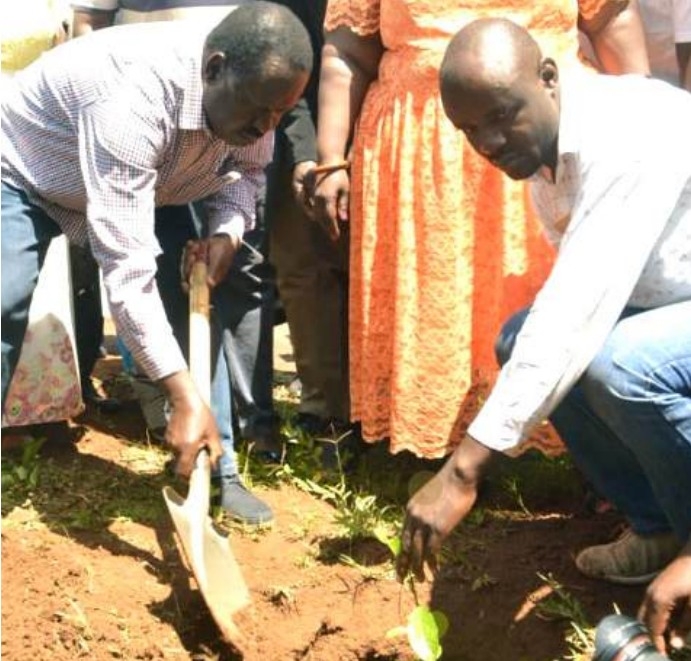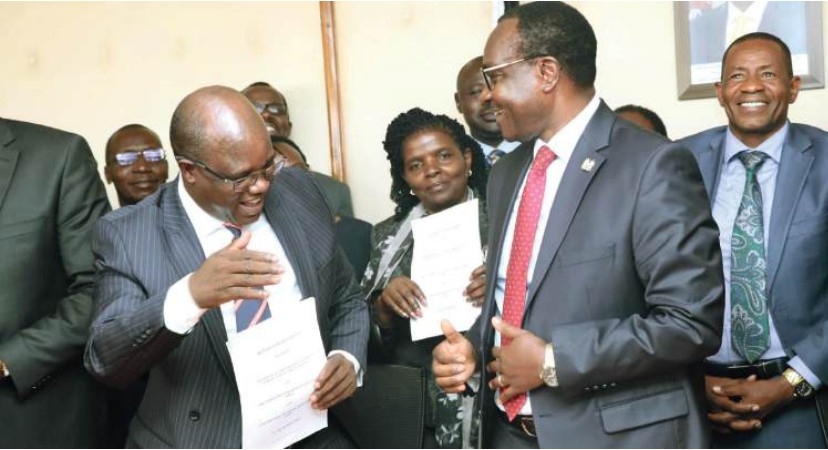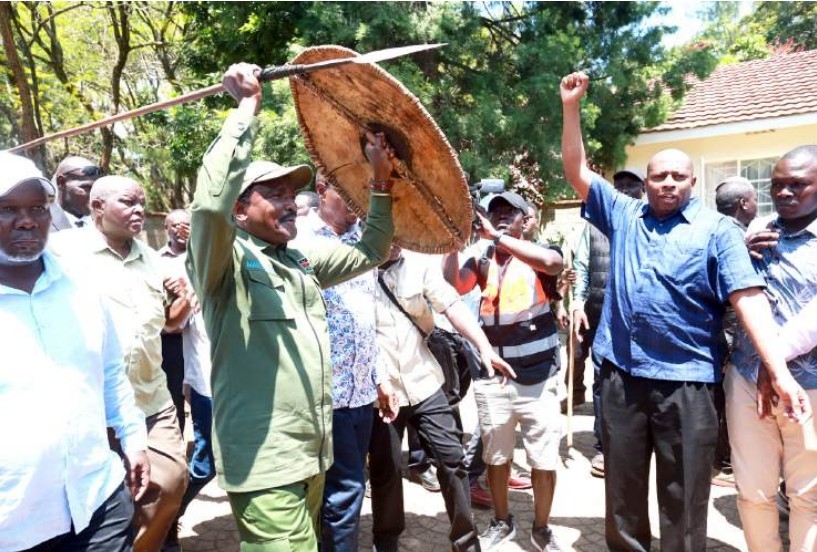 Deputy
President
Kithure Kindiki
during his tour
to assess the
implementation
of the universal
health coverage
at Kenyatta
National Hospital
in Nairobi /KEVIN
MACHARIA/DPPS
Deputy
President
Kithure Kindiki
during his tour
to assess the
implementation
of the universal
health coverage
at Kenyatta
National Hospital
in Nairobi /KEVIN
MACHARIA/DPPSIn 2023, our country was able to attract $800 million, leading bigger economies such as Nigeria and South Africa.
Last year was no different, since we were able to attract $638 million, ahead of Nigeria($410 million), Egypt ($400 million) and South Africa ($394 million).
This is quite significant noting that our country has a far smaller population than the other three.
This start-up investment clearly demonstrates a superior economic environment resulting from the sound policies of the government led by President William Samoei Ruto both at the macro and micro levels.
For example, it’s also true that our shilling held steady to the dollar from a high of 162 to the current 130, being only second to Argentina globally.
This means that our imports are much cheaper and that we have been able to reduce our public debt by more than Sh800 million, meaning that Kenyans will pay less to our lenders than before.
The fact that Kenya was able to pay its Eurobond debt on time against the negative expectations from certain quarters was a clear indication our fiscal policy is on point.
This coupled with reduced wastage through consolidation as a result of budget cuts has enabled scarce resources to be put into maximum use.
The fifth administration has adopted a policy to subsidise production rather than consumption.
This has led to an inflation rate of 2.7 per cent,down from 9.6 per cent in 2022, a record that was last attained more than 17 years ago.
The fertiliser subsidy programme has yielded results moving our country from a net importer of maize to one with a reserve of more than 42 million bags in 2023.
This is significant as we consume about four million bags monthly, meaning this can cover more than 10 months of demand.
In addition, the revitalisation of the sugar sector by writing off debt to the government of Sh110 billion over the last 40 years has made Kenya a net exporter of sugar.
We have met domestic demand, by producing more than 89,000 metric tonnes of the commodity.
Further, the reforms in the dairy industry increased milk prices from Sh35 to Sh50 per litre, with production increasing from 4.6 billion to 5.2 billion liters of milk annually.
This means farmers are able to increase their income. The same applies to coffee.
A kilogramme is now purchased for Sh60 to Sh80 due to the coffee cherry fund allocated Sh6 billion, amongst other changes.
The government has been able to help create more than one million jobs in recent times, with 76,000 teachers being employed (the highest number within two years since Independence), 243,000 jobs abroad through labour mobility, 182,000 digital jobs through the 274 hubs across the country, more than 200,000 jobs through the Affordable Housing Programme.
Other jobs have been created through the HustlerFund. Its borrowing stands at Sh60 billion, Sh10 billion more than the projected Sh50 billion, benefiting more than 24 billion Kenyans.
The country has acquired a high reputation internationally, with our President being elected the champion for reforms at the African Union.
We have also provided leadership in climate justice and peacekeeping missions, as in Haiti.
The year has begun well. We hope to consolidate the gains made since the right foundations have been well laid.
The future for Kenya is promising!














![[PHOTOS] How ODM@20 dinner went down](/_next/image?url=https%3A%2F%2Fcdn.radioafrica.digital%2Fimage%2F2025%2F11%2F99d04439-7d94-4ec5-8e18-899441a55b21.jpg&w=3840&q=100)


